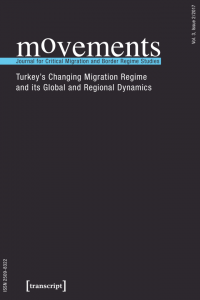MPI | 11.2017
By Luca Lixi
 As maritime arrivals to Europe rose sharply in 2015 and 2016, European policymakers renewed their focus on building partnerships with origin and transit countries in North Africa in an effort to bring Mediterranean crossings under control. Though hardly new—some such partnerships stretch back decades—these efforts have taken on new urgency amid heightened migration to Europe by asylum seekers and migrants.
As maritime arrivals to Europe rose sharply in 2015 and 2016, European policymakers renewed their focus on building partnerships with origin and transit countries in North Africa in an effort to bring Mediterranean crossings under control. Though hardly new—some such partnerships stretch back decades—these efforts have taken on new urgency amid heightened migration to Europe by asylum seekers and migrants.
This report examines two prominent examples of bilateral cooperation on migration management in the region: the partnerships that have emerged between Spain and Morocco, and between Italy and Tunisia. Both have their roots in the early 1990s and experienced underwhelming results early on, with the two European countries focused narrowly on closing their borders and stepping up the return of unauthorized migrants—priorities that clashed with those of their North African partners, for whom remittances are an important source of income and a positive relationship with their diasporas paramount.
These partnerships have since diverged. Morocco and Spain have expanded their cooperation to include a range of capacity-building, joint border patrols, and legal migration programs, while Italy continues to pursue short-term, transactional deals that rely on the promise of aid and investment to incentivize Tunisian cooperation.
As policymakers (re)negotiate agreements to jointly manage routes to Europe, these case studies shed important light on what can be achieved when countries cooperate on the basis of shared objectives, as well as some of the limitations of a relationship built solely around short-term, enforcement priorities.


